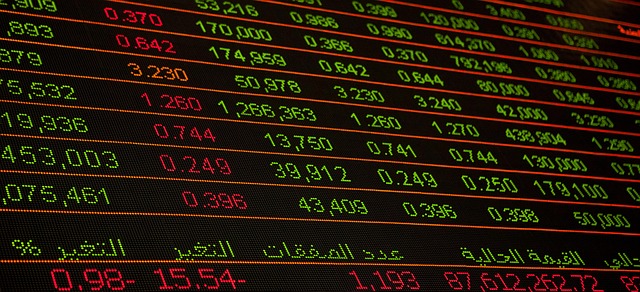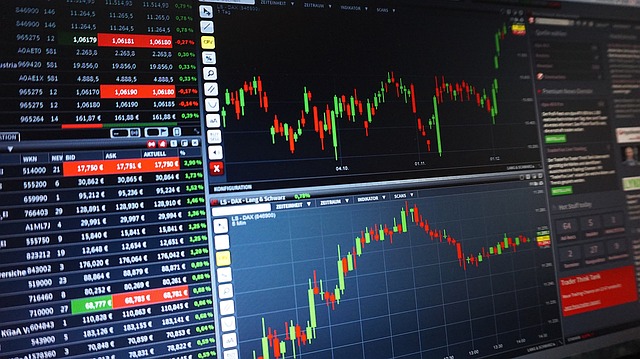Trading, in simple terms, is the act of buying and selling goods, services, or financial assets with the aim of making a profit. It can happen in various forms, from everyday transactions like buying trade groceries to more complex activities like stock trading.
At its core, trading involves two main components: buyers and sellers. A buyer is someone who wants to acquire a product or asset, while a seller is someone who wants to exchange that product or asset for money or another item of value.
In financial markets, trading typically refers to the buying and selling of financial instruments such as stocks, bonds, currencies, and commodities. For example, stock trading involves buying shares of a company with the hope that the company’s performance will improve, allowing the shares to be sold later at a higher price.
Traders aim to profit from price differences over time. They analyze market conditions, news, and trends to make informed decisions about when to buy and sell. Some traders focus on short-term gains by engaging in frequent transactions, while others take a long-term approach, holding onto assets for an extended period.
Overall trade is a fundamental economic activity that facilitates the flow of goods, services, and capital, contributing to market efficiency and economic growth.
Valuable point about trading!
- Rationale for Trades
- Transparency
- Accountability
- Education and Communication
- Regulatory Compliance
- Algorithmic and Automated Trading
Rationale for Trades
Trading involves the buying and selling of financial instruments such as stocks, bonds, currencies, and commodities, aiming to make a profit from price movements. Traders analyze market conditions, trends, and various indicators to determine optimal times to enter and exit trade. This activity is driven by the potential to earn profits by predicting and capitalizing on market fluctuations.
Additionally, trading allows investors to diversify their portfolios, spreading risk across different assets and markets. It also provides a mechanism for hedging against potential losses in other investments. For some, trading is a speculative endeavor where short-term price movements are leveraged for quick gains.
Moreover, active trading contributes to market liquidity, ensuring that there are enough buyers and sellers to facilitate the smooth exchange of assets. Understanding these elements helps traders make informed decisions, manage risks effectively, and enhance their overall financial strategies.
Which online trading platforms are recommended for beginners, and why?
Transparency

Trading transparency refers to the clarity and openness with which financial markets operate. It ensures that all market participants have equal access to crucial information about trades, such as prices, volumes, and the identities of the trading parties. Transparency is essential for fostering trust and fairness in the market.
Key benefits of trade transparency include reduced chances of market manipulation and insider trading, as everyone has access to the same information. It also promotes efficient price discovery, where asset prices reflect all available information. Regulatory bodies, like the Securities and Exchange Commission (SEC) in the U.S., enforce rules to enhance transparency, such as requiring public companies to disclose their financial statements.
For individual investors, transparency means they can make more informed decisions, knowing the market is fair and competitive. Overall, trading transparency is crucial for maintaining a healthy, functioning financial market where all participants feel confident and secure.
Accountability
Trading accountability refers to the responsibility traders and financial institutions have to conduct their activities transparently and ethically. It ensures that all trades are carried out in a manner that adheres to legal and regulatory standards. This involves keeping accurate records of transactions and being transparent about trading activities, which helps in monitoring and auditing to prevent fraud and market manipulation.
Traders must comply with financial regulations, maintaining proper documentation to show that trades are legitimate. Ethical conduct is essential, meaning traders should act with integrity, avoid conflicts of interest, and not engage in insider trading. Effective risk management is also crucial, as it helps prevent excessive risk-taking that could lead to significant financial losses.
In essence, trading accountability fosters a trustworthy and efficient financial market, protecting investors and ensuring the market operates smoothly and fairly.
Education and Communication
This is a very important point.
Trading education and communication are crucial for anyone entering the financial markets. Trade education involves learning the basics of markets, trading strategies, technical analysis, risk management, and the psychological aspects of trading. It often includes studying resources such as books, online courses, webinars, and real-time trading simulations to develop a solid understanding and practical skills.
Communication in trading is equally important, especially in a team or when seeking advice from experienced traders. Effective communication ensures that traders stay informed about market news, trends, and insights. It involves sharing analyses, discussing strategies, and making collaborative decisions to maximize trading success. Tools like trading forums, social media groups, and professional networks facilitate this exchange of information.
Together, education and communication empower traders to make informed decisions, reduce risks, and improve their chances of success in the highly dynamic and competitive trading environment.
Regulatory Compliance

ERegulatory compliance in trading involves adhering to electronic regulatory requirements to ensure fair and transparent trading practices. This means that trading firms must follow rules set by financial authorities to manage and monitor their activities. These regulations require firms to securely store and manage trading data, ensuring that records are accurate and accessible for review by regulators.
Additionally, firms must regularly submit detailed reports about their trading activities, which include information about transactions, positions, and any unusual or suspicious activities. Continuous monitoring is also essential to detect and prevent market abuses like insider trading or market manipulation.
Effective risk management is another crucial aspect, where firms need to implement frameworks to identify and mitigate potential financial risks. By complying with these regulations, firms help maintain market integrity, protect investors, and build trust in the financial system. Non-compliance can lead to severe consequences, including fines, legal penalties, and damage to a firm’s reputation. Therefore, trading firms invest in comprehensive compliance programs and technologies to meet these requirements effectively.
Algorithmic and Automated Trading
ERegulatory compliance in trading involves adhering to electronic regulatory requirements to ensure fair and transparent trade practices. This means that trading firms must follow rules set by financial authorities to manage and monitor their activities. These regulations require firms to securely store and manage trading data, ensuring that records are accurate and accessible for review by regulators.
Additionally, firms must regularly submit detailed reports about their trading activities, which include information about transactions, positions, and any unusual or suspicious activities. Continuous monitoring is also essential to detect and prevent market abuses like insider trading or market manipulation.
Effective risk management is another crucial aspect, where firms need to implement frameworks to identify and mitigate potential financial risks. By complying with these regulations, firms help maintain market integrity, protect investors, and build trust in the financial system. Non-compliance can lead to severe consequences, including fines, legal penalties, and damage to a firm’s reputation. Therefore, trading firms invest in comprehensive compliance programs and technologies to meet these requirements effectively.

















